Dune
 for sequences of strong violence, some disturbing images and suggestive material.
for sequences of strong violence, some disturbing images and suggestive material.
Reviewed by: Keith Rowe
CONTRIBUTOR
| Moral Rating: | Offensive |
| Moviemaking Quality: |
|
| Primary Audience: | Adults |
| Genre: | Sci-Fi Action Adventure Adaptation Remake IMAX |
| Length: | 2 hr. 35 min. |
| Year of Release: | 2021 |
| USA Release: |
October 22, 2021 (wide release—4,125 theaters) DVD: January 11, 2022 |
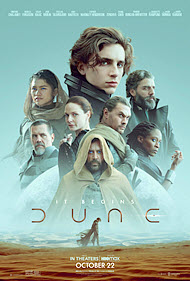

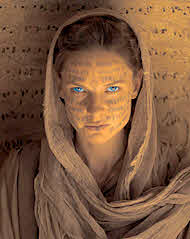
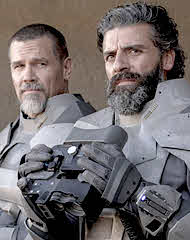
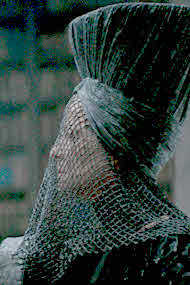
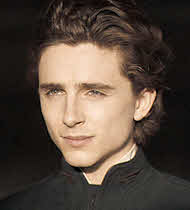
A world in which the most valuable substance in the universe is ‘melange’ (also called ‘spice’), a drug that extends human life, provides superhuman levels of thought, and makes faster-than-light travel practical
Messiah-figure
What is a PROPHET in the Bible? and who is one?
PROPHECY—Is there valid prophetic evidence that the Bible is God’s Word? Answer
List of Messianic prophecies fulfilled by Jesus Christ
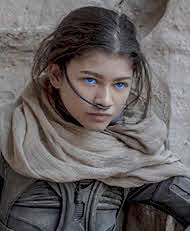
Science fiction fantasy
Feudalism
Nobility and honor
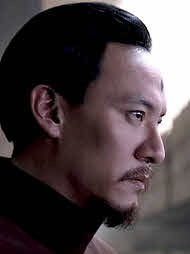
Betrayal / walking into a trap
“I must not fear. Fear is the mind-killer.”
FEAR, Anxiety and Worry—What does the Bible say? Answer
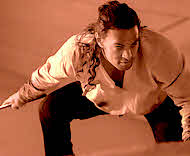
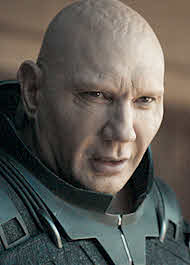
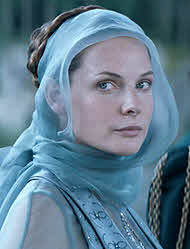
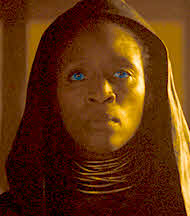
| Featuring |
|---|
|
Timothée Chalamet … Paul Atreides Rebecca Ferguson … Lady Jessica Atreides Oscar Isaac … Duke Leto Atreides Jason Momoa … Duncan Idaho Stellan Skarsgård (Stellan Skarsgard) … Baron Vladimir Harkonnen Stephen McKinley Henderson … Thufir Hawat Josh Brolin … Gurney Halleck Javier Bardem … Stilgar Sharon Duncan-Brewster … Dr. Liet Kynes, an Imperial Planetologist Chen Chang (Chang Chen) … Dr. Wellington Yueh Dave Bautista … Beast Rabban Harkonnen David Dastmalchian … Piter de Vries Zendaya … Chani Charlotte Rampling … Reverend Mother Mohiam See all » |
| Director |
|
Denis Villeneuve —“Blade Runner 2049,” “Arrival,” “Sicario” |
| Producer |
|
Villeneuve Films [Canada] Legendary Entertainment See all » |
| Distributor |
Sequel: “Dune: Part Two” (2024)
The Padishah Emperor has ordered House Atreides to pack up and move from temperate timberland, Caladan, to arid sandbox, Arrakis. The cosmic house swap is completed when rival House Harkonnen abandons Arrakis for the incoming House Atreides. And so begins an era of peace and prosperity on the Atreides-ruled Arrakis. Guess again!
A member of the Atreides’ inner circle is a traitor. The conspirator arranges for a combined Harkonnen and Sardaukar (Imperial elite soldiers) army to slip into the capital city, Arrakeen, at night. Many Atreides warriors are lost in the battle; those who survive learn, too late, that they were set up from the start.
That bare bones description of “Dune,” the latest cinematic envisioning of Frank Herbert’s seminal science fiction novel, is only half of the overall story since this film is the first of two parts.
If you had a hard time digesting the above synopsis, know that it was even more challenging to summarize Herbert’s sprawling epic. Aside from its Machiavellian intrigue, planet-hopping plot, coming-of-age subplot and pseudo-religious underpinnings, the story’s expansive glossary of terms (ornithopters, hunter-seekers, stillsuits, in addition to all the proper nouns listed above) is enough to give you a brain freeze… even on Arrakis.
A world (universe) so rich with different races, beliefs, creatures, weapons and cultures brings to mind another fictional masterwork, J.R.R. Tolkien’s The Lord of the Rings trilogy. In fact, it isn’t much of a stretch to say that Dune is to science fiction what “The Lord of the Rings” is to fantasy. They’re the high-water marks for their respective genres.
For all the diehard, deep cut “Dune” fans out there, I don’t claim to be an expert on the subject. However, I’ve seen David Lynch’s 1984 film (several times), the mini-series that aired in 2000 on the Sci-Fi Channel (now Syfy), and have listened to the unabridged audiobook. That said, take my comments with a grain of sand …or salt.
Directed by Denis Villeneuve (“Blade Runner 2049”), “Dune” is a visually breathtaking film. The set design, particularly the interiors of the Arrakeen buildings, is nothing short of inspired and lends the film an aesthetic that’s familiar (based on human architecture), yet otherworldly. The costumes, weapons and technology are all well crafted and seamlessly blend into the story’s milieu.
Particularly striking is the film’s array of surface and space-faring ships. The dragonfly-like ornithopters are fun to watch as they flit over dunes and mountains. The harvesters fit the bill as large cargo vessels with tank treads to help them slowly amble across the desert terrain.
Due to their immense size and angular designs, the capital ships are jaw-dropping. They almost have a physical presence when ominously hovering above the surface. The surreal atmosphere created in these scenes is similar to the effect Villeneuve achieved in “Arrival” (2016) with his massive, contact lens-shaped alien ship.
Villeneuve has assembled an impressive ensemble of performers. Yet, some of the parts seem miscast. For instance, Timothee Chalamet (as Paul Atreides) is ten years older than his character and seems too brooding for the part. Oscar Isaac (Leto Atreides) is too hard-edged and fails to capture the world-weary aspect of the character, as portrayed in the book.
In my opinion, Jason Momoa and Dave Bautista don’t fit their parts and were brought in merely to shore up the movie’s action scenes (and to attract fans of their other movies). I’m conflicted about Josh Brolin as Gurney Halleck. Javier Bardem and Stellan Skarsgård are perfect in their roles. The women are all fabulous, especially Charlotte Rampling as the Reverend Mother.
Despite its stellar production, this film isn’t everything I’d hoped it would be. Compared to the film’s massive scale, the characters seem small and insignificant. Indeed, the characters are swallowed up (as if by a sand worm) by the expansive sets and the sheer magnitude of the story. Character moments are few and seem insignificant against the backdrop of interstellar war.
Even the action sequences are uninvolving and (here’s something I never thought I’d say) too short. To provide an omniscient view of the battles, many of the scenes were filmed from a distance. As a consequence, the audience doesn’t get to feel the pulse-pounding intensity of close combat or experience the jeopardy that comes with following the main characters through the battle (e.g., the melees in “The Lord of the Rings”). The notable exception is when Momoa’s Duncan Idaho sacrifices himself Boromir-style to give his friends time to flee the rapidly approaching Sardaukar.
As with many movies, the biggest drawback here is the story; the screenplay was adapted by Villeneuve, Jon Spaihts and Eric Roth. Though their script remains faithful to the source material (in most respects), the writers focused their attention on servicing the fans more than clarifying story elements for the newcomers. Granted, the narrative can be confusing, even to the initiated, but the writers failed to provide adequate context for the story’s plethora of planets and peoples. They dole out bits of exposition at a pace that might lose some spectators. If I wasn’t already familiar with the world of “Dune,” I would’ve been thoroughly confused by this presentation of Herbert’s novel.
One element that should remain invisible in any movie is the score. As a rule, noticing the music isn’t a good thing, because it can pull you out of the reality of the film. Much of Hans Zimmer’s score for “Dune” is like listening to an army of rhythmically-challenged people pounding on metal garbage can lids with turkey legs. This type of grating, banging, industrial sounding accompaniment, complete with screaming electric guitars, is fitting for the handful of Harkonnen scenes, but not for the bulk of the score.
Some of the music is noteworthy; Middle Eastern sounds are used for the Fremen scenes, and there’s a beautiful passage with a soprano during one scene. But, overall, the word I’d use to describe Zimmer’s score is “obnoxious” (or perhaps just “noxious”). I recently purchased his soundtrack for “No Time to Die” which is way, way better (and far more listenable) than this effort.
Objectionable Material
Alcohol/Drugs: No alcoholic beverages are imbibed in the film. The main industry on Arrakis involves the production of spice, a type of psychoactive drug.
Nudity and Sexual Content: Baron Harkonnen’s exposed, morbidly obese shape is seen through a dense cloud of steam. Leto Atreides’ bare chest is seen as he lies in bed. Later, a table covers Leto’s private areas; we see his bare legs and torso in several different shots/angles. Paul takes off his shirt as he changes into his stillsuit. There’s mention of a rape that transpired in the past.
Violence and Graphic Content: Much of the combat is obscured by smoke, fire or the shimmering of personal shields. Also, a good portion of the fighting is filmed at a distance, so gory displays typically aren’t foregrounded. It’s implied that two people are decapitated, but the violence takes place off-screen.
In several scenes we see bloody knives/swords or bloody hands. One character is impaled with a dart. Some characters are swallowed whole by a giant sand worm.
The struggle inside the ornithopter is one of the most violent sequences in the film. Lady Jessica (Rebecca Ferguson) uses her Weirding voice to make Harkonnen soldiers stab themselves or each other.
Two characters engage in a knife duel late in the film.
Most of the violence isn’t overly graphic or bloody.
Vulgarities: “Dune” has a relatively low number of swear words: h*ll (2), d*mn (2), a** (1) and sh*t (8). The movie has a few instances of inappropriate or irreverent speech: “good omen,” “like demons,” “My God!” and “God in heaven!”
Spiritual Aspects
Some of the terminology in “Dune” was inspired by Earth religions. Terms like Bene Gesserit (similar to Jesuit) and Reverend Mother have heavy Roman Catholic influences. Even the weapon “crysknife” sounds like its etymological root is in “Christ” or “Christian.”
The Atreides (Christians, Jews) are characterized as colonizers and capitalists, while the nomadic Fremen (Muslims) are the religious rebels who seek to wage a holy war against their oppressors. There’s a clear pro-Muslim bias here since the goal of the desert dwellers is to overthrow the industrialists so they can transform Arrakis into a paradise.
Though it’s en vogue to cheer for the downtrodden, it’s dangerous when those groups adhere to radical ideologies that promote the slaughter of Jews and Christians, believers in the one, true God (I Timothy 2:5). Alarmingly, pro-Muslim sentiment has permeated Western culture, especially our entertainment and media. Even iconic films like “Star Wars” (which may have been partially inspired by “Dune”) feature a rebel force destroying the fortress of oppressive imperialists. It’s a satisfying resolution because good triumphs over evil. However, in our modern world, where the line delineating good and evil has become increasingly blurred, and when many call evil good and good evil (Isaiah 5:20), discernment is needed when choosing sides.
Early in the film, it’s mentioned that the Bene Gesserits have been trying to breed “The One,” which hints at Paul’s potential to become a religious leader. Also, Paul sees visions of the future, which makes him a prophet at the very least.
When Paul arrives on Arrakis for the first time, the Fremen crowds shout a word that translates as “messiah.” This sequence is reminiscent of Christ’s triumphal entry into Jerusalem (Matthew 21:1-11). It’s mentioned that the Fremen are preparing the way for the arrival of their savior, which is what John the Baptist did for Christ (Mark 1:3).
Later in the film, Paul fulfills the Fremen prophecy “he shall know your ways as if born to them.” This gives further credence to the belief that Paul is the Fremen messiah. However, regardless of how heroic Paul is portrayed, the Bible clearly states that only Jesus is the way, truth and life (John 14:6).
The religious symbolism in “Dune” has been analyzed by amateurs and scholars for decades, so I’ll wrap up my comments on the subject by saying there’s a great deal to consider for those interested in digging deeper into the topic.
Shifting to some ancillary issues, the movie’s MacGuffin is the spice (melange), which is created by the sand worms. In addition to allowing rapid transit through space, spice is used as a drug and allows people to see future events. As with real drugs, constant exposure to the spice can create dependency and produces brain-altering effects.
The drug epidemic was blossoming in 1965, when the book was released. Sadly, our nation’s drug problem is far worse today.
When Paul engages in personal combat with a Fremen challenger, Lady Jessica says he’s never killed a man. Since the contest is to the death, Paul kills the Fremen. Not only is the murder permitted, it’s required by Fremen custom. Though done in self-preservation, Paul’s murderous act is a violation of the sixth commandment (Exodus 20:13).
Final Thoughts
Despite being the best visualized version of Herbert’s classic, this version of “Dune” is a mild disappointment.
Unlike its scorching hot environs, the story is cold and aloof, offering insufficient context and scant character development. In a strange paradox, the film manages to be both awe-inspiring (production) and uninspiring (story).
The ending leaves the audience lost in the desert. We’ll see if they find their way back to the theater for “Dune, Part 2.”
- Violence: Heavy to Very Heavy
- Vulgar/Crude language: Moderate— • s-words (8) • “To showers you scrub your a** with sand”
- Profane language: Moderate— • “My g*d” • “What the h*ll is a…?” • “H*ll-hole” • “I don't give a d*mn about…” • “D*mn the spice”
- Drugs/Alcohol: Mild to Moderate— “Spice” in the film is hallucinogenic and has a mystical power to produce prophetic visions of the future and enables Spacing Guild pilots to have phenomenal abilities.
- Nudity: Minor— • Seemingly fully nude made tied to a chair (not explicit) • Partial view of a man’s bare buttocks • Shirtless male
- Sex: Mild— • Kidnapper indicates he plans to rape Lady Jessica (but it does not happen) • Near kiss between unmarried couple
- Occult: The story suggests some type of superhuman physical and mental abilities or perhaps supernatural occult(?) ability for the mysterious and corrupt Bene Gesserit religious order (all women). They have the ability to overcome people’s free will, to speak with a strange voice (“The Voice”) to manipulate others, and use a form of lethal combat called “The Weirding Way.”
See list of Relevant Issues—questions-and-answers.


This movie is boring because it is far too long if one has to wait for version 2. Yes, the special effects are better, but who can remake the original “Wizard of Oz” today with special effects and convince us that it is worth watching, especially in 2 movies? Producers were smart to make a 2013 PREQUEL to the Wizard of Oz and not a remake.
Final thought. 2021 “Dune” is boring.
Moral rating: Average / Moviemaking quality: 4
This Dune, unlike its predecessor, is a smorgasbord of failed character development and absentee morals. House Atreides and its leader, Duke Leto, his wife-concubine Lady Jessica, and the sullen Paul are the only indicators of a smidgen of moral rectitude absent from homicidal maniacs like the Padishah Emperor or Baron Vladimir Harkonnen. Characters feel soulless, with scenes stolen from previous productions, and actors like Jason Momoa badly miscast to a stupid degree. Zendaya is a poor choice for Chani as she doesn’t seem to contribute meaningfully whatsoever. By not portraying Feyd Harkonnen, a classic villain and a yardstick by which we may compare the morals of the Atreides to those of the empire, makes the film an empty exercise.See all »
Moral rating: Average / Moviemaking quality: 1
When you see it as a Christian, I feel it’s too disturbing to take part in watching with Jesus sitting next to me. I didn’t finish it because in every viewing of “Dune” I fall asleep. But I doubt I will go back and watch it in full. Incidentally the mini-series from the late 90’s is the most tame and watchable, but has the lowest production value.
Moral rating: Very Offensive / Moviemaking quality: 4½
As Christians we are to oppose Islam as Islam states God has no son and The Bible clearly says that the antiChrist is the one who denies the father and the son. The antiChrist is stated for us clearly in Scripture, we have no need to wonder if some present world leader or future is going to fit this bill when the Islamic “savior” fits the model for it clearly. Leading them to Paradise? Deceiving the world to Hell more like it!
We are not to compromise with Islam but we are to have nothing to do with the works of darkness but to instead expose them. Sharing the gospel with Muslims is all we can really do given the stronghold Islam places on its followers.
I did like it from a filmmaking perspective. But I felt such evil in it that I had to walk out.
Moral rating: Extremely Offensive / Moviemaking quality: 5
PLEASE share your observations and insights to be posted here.
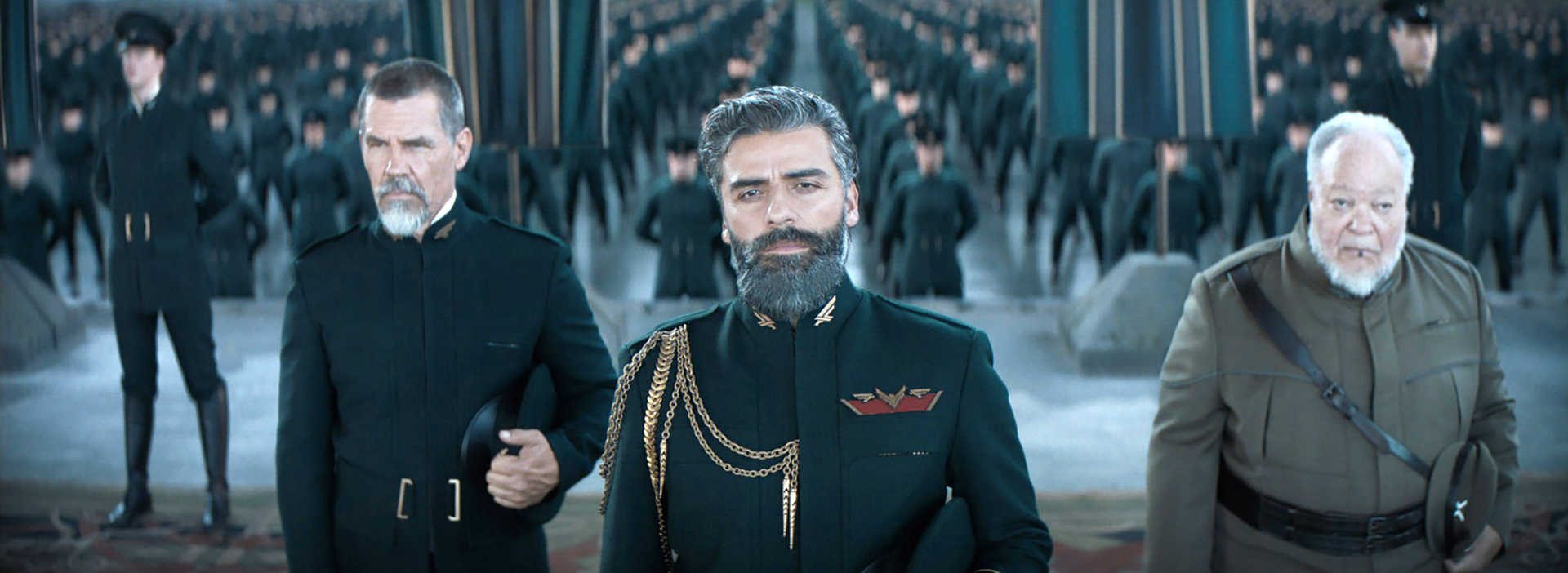

This version of Dune is an unfortunate and tragic farce. There is no characterization of any kind, no reason why we should care why the Harkonnen murder Duke Leto Atreides; no reason to care why Lady Jessica is bound in the back of an aircraft; no reason to care who Paul is and why he is important as the Mahdi, the one who will come to save the Fremen from their invaders. Timothy Chalamet has nothing on Alec Newman, who played the tortured and complex Muadib Paul Atreides with such a delicate yet profound effect. That Paul matured through the horror of war into a towering freedom fighter, and later, into the profound tyrant as the new emperor who only later regains his humanity and dies as a broken, repentant desert prophet. The rule of modern fiction writing is “show, don’t tell.” So show us why we should care about these characters or why we should accept the cinematic portrayal.
The only audience member who could understand the miasma of stolen moments from previous Dune productions is one intimately familiar with either the novels or the mini-series “Frank Herbert’s Dune” from 2000. For this is what this year’s Dune does, borrows character moments and scene-stealing situations from the previous adaptations to try to ingratiate fans into loving the production when they might not: the Gurney-Paul knife sparring, the Baron gloating over the dying Leto, Chani sneaking up on Paul during the discovery of the Fremen, etc.
Sadly, all one can do is compare this lackluster production with that much-loved mini-series to begin to understand why Timothy Chalamet and Zendaya are not properly cast for these two characters, Paul and Chani. And this Lady Jessica portrayed by Rebecca Ferguson has nothing on the tough, wise, and pit-bullish Lady Jessica portrayed by Saskia Reeves in the 2000 Sci-fi mini-series.
The film’s technical failings include an irritating musical score that doesn’t do the story justice; it grates on the nerves and lacks the flow of the rhythmic score created to suit the 2000 mini-series; consider also the idiotic chanting of the priests as they bless the Sarduakar about to depart for Arrakis to kill the Duke’s people. Most scenes are much too dark and there is little color contrast to help people differentiate the environment from the characters.
Characterization is completely lacking: we don’t care why Zendaya’s Chani is as flat as her kriss knife; no emotion or personality as Barbara Kodetova’s Chani in the same mini-series I mentioned. We don’t get to see this Chani live and breath, fight and kill for her people’s freedom, or passionately proclaim her desire to help mold Arrakis into a prophesied Paradise-on-Earth. That Chani, from 2000, is a beautiful and powerful figure who haunt’s Paul’s soul, but in a good way, as he has dreamed about her and their relationship since his youth.
The Dr. Kines character is portrayed as a woman in this cinematic adaptation and completely botches the original portrayal of this dual Fremen-Imperial citizen who acts as the Emperor’s ecologist. Cross-reference this portrayal with the 2000 Sci-fi mini-series and you will see a lackluster individual that neither inspires us nor convinces us that she could be a great Fremen leader and mother to Chani.
Other glaring character flaws include the bloated Baron Harkonnen played by Stellan Skarsgaard, a towering actor ineffectively utilized to play this hulking mass of flesh with a towering, deadly intellect all his own. Better to have the Baron portrayed by an equally towering actor like Ian McNeice, whose portrayal of the villain in the mini-series is truly a magnificent achievement that drives the story line and the ensuing tragedies in Dune and Children of Dune.
Jason Momoa, a magnificent actor in his own right, is not properly cast as the beloved figure of Duncan Idaho, a mentor-friend to the young Paul Atreides. He cannot properly portray what the scriptwriters failed to capture from the novel and the plot fails miserably because of this. And the most monumental failure: How can we have a Dune without the deadly Feyd Harkonnen?
The character of Feyd Harkonnen is a towering villain that adds menace and brutality to a tension-filled drama between the Atreides and House Harkonnen. He is, as Gurney describes him in the 2000 mini-series, “A cold-blooded killer.” That adaptation saw the menacing youth portrayed by Matt Keeslar, who blended Feyd’s youthful attractiveness with his instinctive malice to produce a more genteel type of villain. A villain as lethal and precise as the blades he wields. To not have Feyd in such a towering story line is like saying you will create a Star Wars series without its Darth Vader; it cannot be done.
Without Feyd, how else will Paul take revenge on the empire that conspired to destroy his family and his race?
Bad character portrayal and technical flaws are not the only reasons why this movie has failed. It failed because it didn’t properly recreate the grand tapestry of the original novel and create the many-layered universe the characters inhabit. It didn’t give the characters the time they needed to fully form in our minds and execute the great conflicts that make them crash against each other like storm waves on a coastline.
No, this is not Dune. It is a poor representation of better productions that came before. Not that the 1984 version did the novel justice whatsoever for the exact same reasons.
But Christians need not be concerned: there is little in this movie that ought to concern them as the villains receive their due punishment by series end. There is fornication; there are superstitions and whole religions loosely based on Christianity or Islam. But it all depends on your own choice and sensitivities as you’ll have to decide for yourself.
My Ratings: Moral rating: Better than Average / Moviemaking quality: 2½